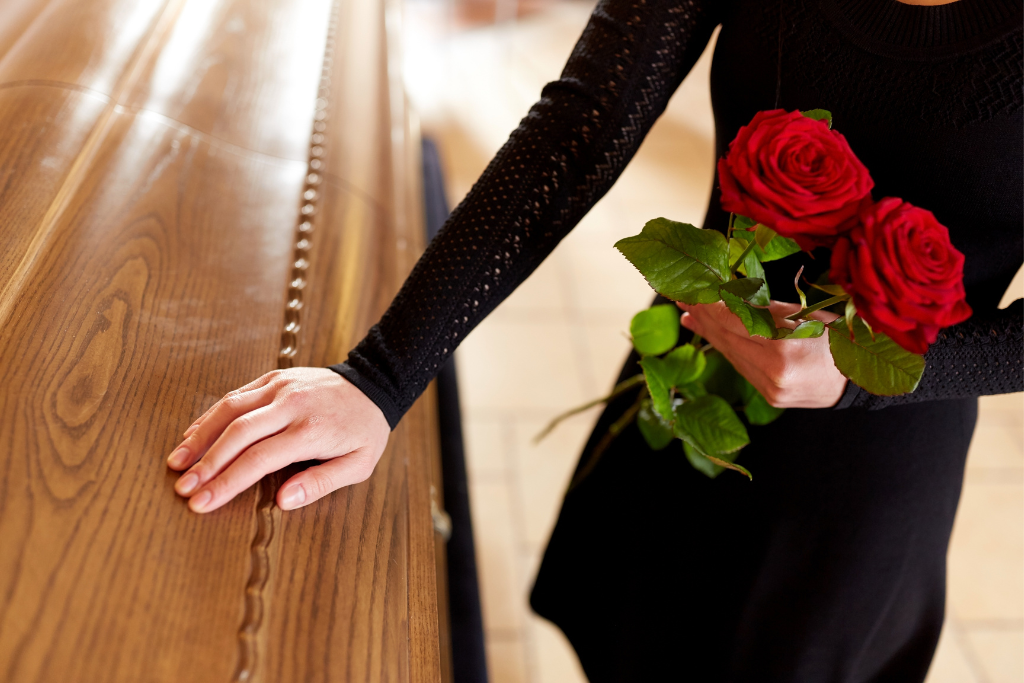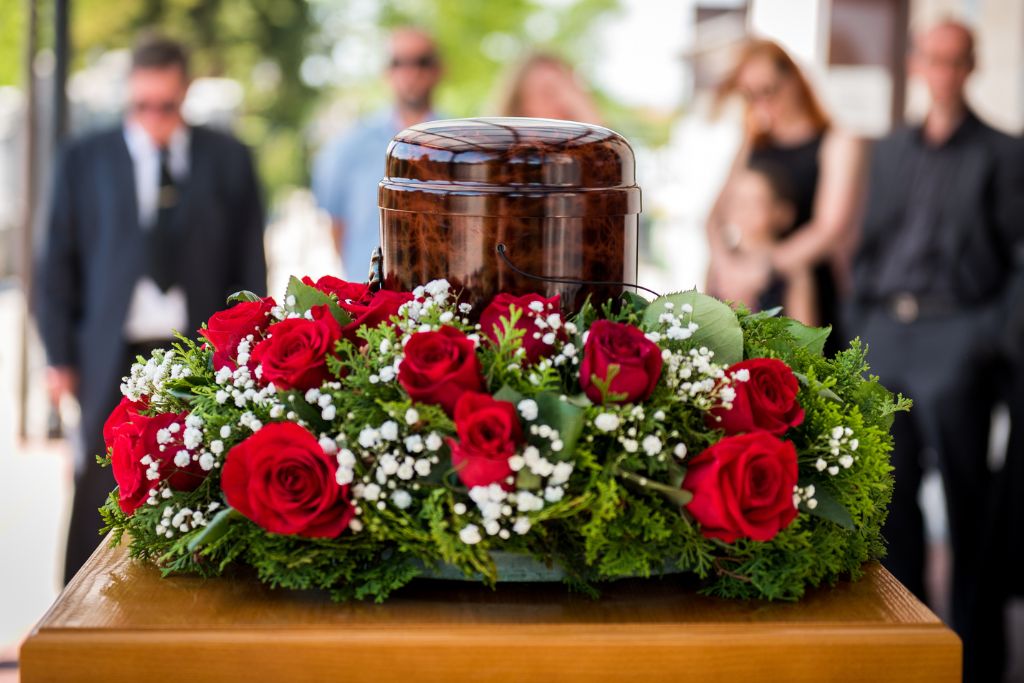Crémation ou inhumation traditionnelle – avantages et inconvénients
La décision concernant la forme de sépulture est une affaire profondément personnelle, et il est difficile de fournir des conseils définitifs à ce sujet. Le choix peut se fonder sur une déclaration écrite exprimant les dernières volontés du défunt ou sur la volonté et les connaissances des proches qui organisent les funérailles.
Quelles sont les exigences légales pour la crémation et l’inhumation traditionnelle ?
Les réglementations légales concernant la crémation et l’inhumation traditionnelle sont définies dans la loi du 31 janvier 1959 sur les cimetières et l’inhumation des défunts. Pour procéder à une crémation, une autorisation écrite d’un membre de la famille est requise, ou un document exprimant les dernières volontés du défunt concernant la forme de sépulture.
Dans les cas où les restes sont incinérés après exhumation, une autorisation supplémentaire du poste sanitaire et épidémiologique du district est nécessaire.
La crémation est-elle conforme aux principes de la foi catholique ?
L’Église catholique autorise la crémation depuis 1963 et, depuis 2016, accepte les messes funéraires en présence d’une urne contenant les cendres. Cependant, l’Église n’autorise pas la conservation d’une urne en dehors d’un cimetière consacré, ni la fabrication de souvenirs ou de bijoux à partir des cendres.
La dispersion des cendres sur l’eau ou en forêt n’est pas non plus autorisée — ni par l’Église ni par la loi polonaise.
Malgré l’évolution de la position de l’Église concernant la crémation, de nombreuses personnes profondément religieuses préfèrent encore l’inhumation traditionnelle.
Les adieux à la maison funéraire, ainsi que la messe funéraire, peuvent avoir lieu en présence d’un cercueil ou d’une urne contenant les cendres.
Quels sont les avantages et les inconvénients de la crémation ?
Avantages :
- Coûts plus faibles liés à la concession funéraire — l’urne peut être placée dans un columbarium ou dans une tombe familiale existante.
- En raison du manque d’espace dans les cimetières, surtout dans les grandes agglomérations, la crémation améliore l’accessibilité des lieux de mémoire pour les proches.
- Plus respectueuse de l’environnement — elle ne pollue pas les eaux souterraines et ne nécessite pas un cercueil fabriqué à partir de bois coûteux.
- Procédure plus simple pour le transport des cendres par rapport au transport d’un corps en cercueil, en particulier si le décès est survenu loin du lieu d’inhumation.
La crémation effectuée dans le cadre des services funéraires complets de Bongo est réalisée dans le plus grand respect de la dignité du défunt, tout comme l’inhumation traditionnelle. En cas de décès à l’étranger, la crémation peut être envisagée soit dans le pays où le décès est survenu, soit après le transport du corps vers la Pologne. Bongo coopère avec les crématoriums de Łódź et de Cracovie.
Inconvénients :
- Les associations historiques et religieuses peuvent susciter des sentiments négatifs.
- Certaines personnes peuvent éprouver plus de difficultés émotionnelles à faire leur deuil ou estimer que la crémation ne permet pas un « véritable » adieu au défunt.
- Elle peut entraîner une charge psychologique plus importante pour certains, en raison du sentiment d’un manque de respect adéquat.
Quels sont les avantages et les inconvénients de l’inhumation traditionnelle ?
Avantages :
- Conforme aux coutumes, en particulier parmi les générations plus âgées.
- Pour certains, elle facilite le processus de deuil et l’entretien de la mémoire du défunt.
Inconvénients :
- Coûts plus élevés liés à la concession funéraire.
- Moins respectueuse de l’environnement, en particulier lorsque le corps est embaumé et enterré dans un cercueil verni contenant des éléments en plastique.
Si vous avez des doutes ou des questions concernant le choix de la méthode d’inhumation, il est préférable de contacter Bongo International Funeral Services, où un représentant vous fournira des informations détaillées.













